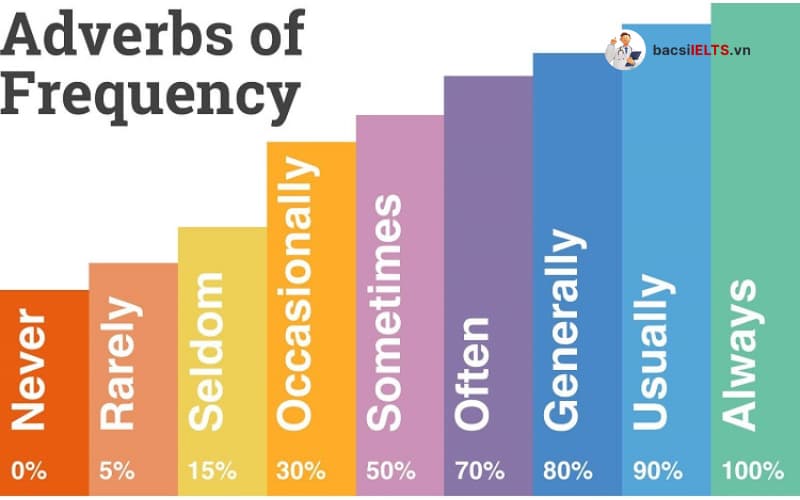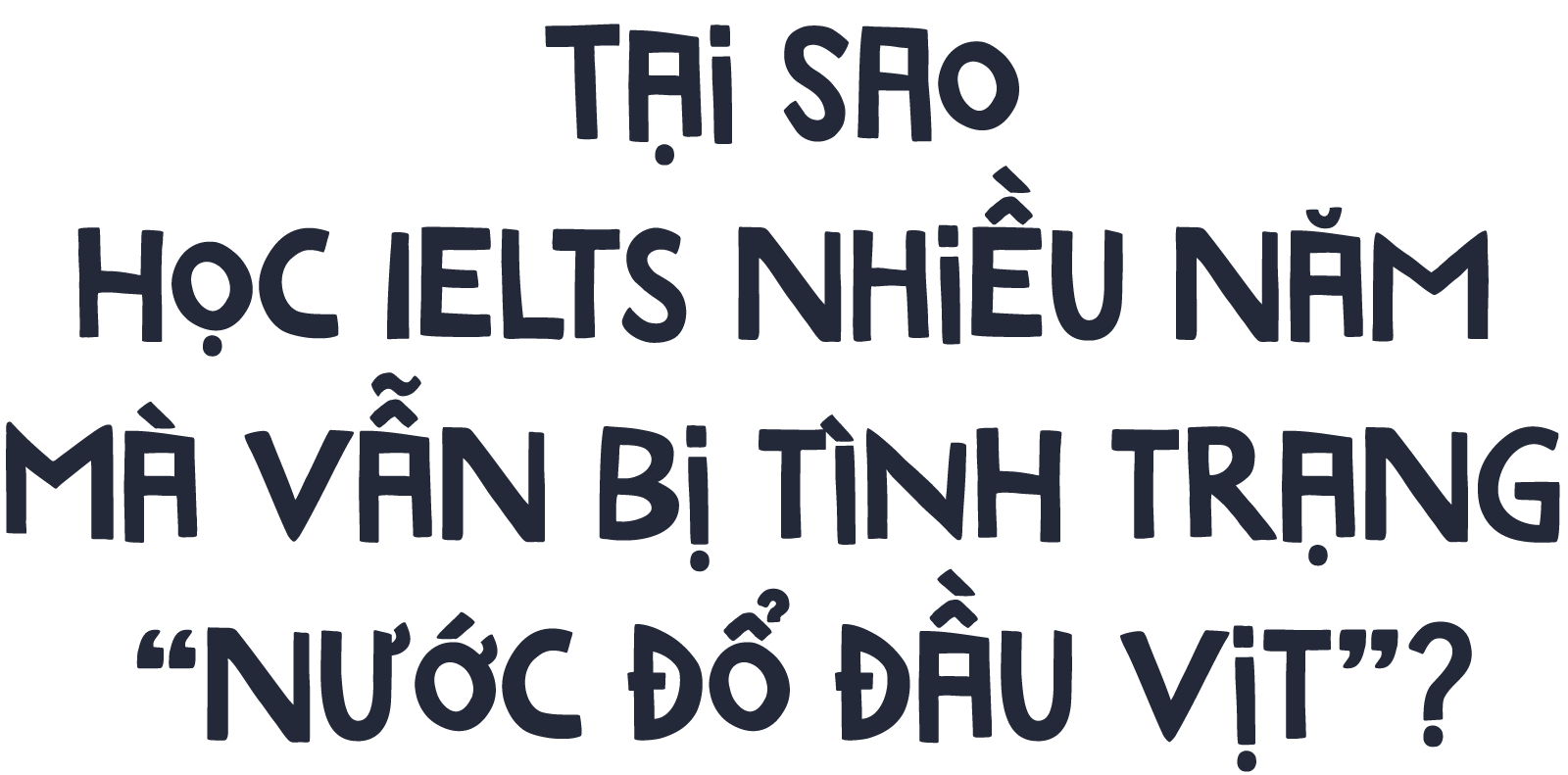Cụm trạng từ trong tiếng Anh nắm một vai trò khá quan trọng với chức năng chính là bổ ngữ cho danh từ. Cụm trạng từ dùng để nhấn mạnh hơn về tính chất, trạng thái và ngữ nghĩa của danh từ trong câu.
Để hiểu rõ hơn nữa về cụm trạng từ, hãy cùng bác sĩ IELTS khám phá tất tần tật những kiến thức về cụm trạng từ trong tiếng Anh ngay sau đây.

1. Cụm trạng từ trong tiếng Anh là gì?
Cụm trạng từ trong tiếng Anh (Adverbial phrase) hay còn gọi là Adverb phrase, đây là một nhóm từ với chức năng như một trạng từ trong câu. Có nghĩa là, cụm trạng từ trong tiếng Anh sẽ được sử dụng để bổ nghĩa cho động từ, tính từ, trạng từ, mệnh đề hoặc nguyên cả một câu. Cụm trạng từ trong tiếng Anh thường sẽ bao gồm một trạng từ – gọi là head word – là từ chính, được làm rõ nghĩa bằng những thành tố khác.
Ví dụ về cụm trạng từ trong tiếng Anh ta có: very quickly, surprisingly well,…
Ví dụ về cụm trạng từ trong câu:
- “Shelia rode her bike very hastily so she could get home sooner.”
- “The surf at the beach was coming in extremely quickly.”
- “He read the restaurant’s menu rather slowly.”
2. Các loại cụm trạng từ trong tiếng Anh
2.1. Cụm trạng từ chỉ mức độ (Adverbial phrases of degree/extent)
Cụm trạng từ trong tiếng Anh thông dụng nhất phải kể đến cụm trạng từ chỉ mức độ. Các cụm trạng từ trong tiếng Anh chỉ mức độ sẽ thể hiện qua cường độ, mức độ hoặc những trọng tâm của hành động. Trong đó, những trạng từ chỉ mức độ sẽ làm rõ nghĩa cho trạng từ đi kèm ngay sau đó.
Ví dụ cụm trạng từ chỉ mức độ:
(1) They repaired my car [very] quickly.
(2) He worked [extremely] hard in the game.
(3) She did [really] well in her race.
(4) Why are you leaving [so] soon?
Sau đây là một số trạng từ chỉ mức độ theo thứ tự giảm dần:
- Completely, totally, absolutely, entirely, quite
- Very, extremely, really, awfully, terribly
- Rather, fairly, quite, pretty, somewhat
- A little, a bit, slightly
- Hardly, scarcely, at all
- Các trạng từ mức độ khác: so, as; too; more, most, less, least

Có thể bạn quan tâm:
Quy tắc cấu tạo từ trong tiếng Anh
Vị trí của trạng từ trong tiếng Anh
2.2. Cụm trạng từ chỉ khả năng (Adverbial phrases of probability)
Những cụm trạng từ chỉ khả năng sẽ được thể hiện mức độ chắc chắn của chúng ta khi nói về một sự vật, sự việc nào đó.
Ví dụ:
- He [definitely] never would’ve spoken to her like this.
- A battle is [only] truly won when the opponent believes he’s been beaten.
- Shakespeare was undoubtedly the greatest master the English language has ever known and, [quite] probably, will ever know.
Sau đây là những trạng từ chỉ khả năng:
- certainly; conceivably; definitely; doubtless; indeed; of course; obviously; really; surely; truly; undoubtedly
- likely; maybe; perhaps; possibly; probably; unlikely
2.3. Cụm trạng từ chỉ thời gian (Adverbial phrases of time)
Đây là những cụm trạng từ trong tiếng Anh dùng để trả lời cho câu hỏi khi nào (when), hoặc để nói về một điều gì đó xảy ra thường xuyên (how often).
Ví dụ:
- I got home at seven twenty. (Tôi về đến nhà vào lúc 7 giờ 20 phút.)
- The festival takes place every year. (Lễ hội được tổ chức mỗi năm.)
- I’ll do it in a minute.
- After the game, the king and pawn go into the same box. (Italian Proverb)
- Do not wait for the last judgment. It takes place every day. (Albert Camus)

2.4. Cụm trạng từ chỉ nơi chốn (Adverbial phrases of place)
Đây là cụm trạng từ trong tiếng Anh dùng để trả lời cho câu hỏi về nơi chốn (where), một điều gì đó xảy ra.
Ví dụ:
- I met her in Da Nang. (Tôi gặp cô ấy ở Đà Nẵng.)
- She saw John there. (Cô ấy thấy John ở đó.)
- I used to work in a fire-hydrant factory. You couldn’t park anywhere near the place.
- Opera is when a guy gets stabbed in the back and, instead of bleeding, he sings.
2.5. Cụm trạng từ chỉ cách thức (Adverbial phrases of manner)
Đây là cụm trạng từ trong tiếng Anh sẽ trả lời cho câu hỏi như thế nào (How).
Ví dụ:
- He would always talk with a nationalistic tone.
- He sings in a low register.
- People who say they sleep like a baby usually don’t have one
2.6. Cụm trạng từ chỉ lý do (Adverbial phrases of reason)
Cụm trạng từ trong tiếng Anh này sẽ trả lời cho câu hỏi tại sao, lý do (Why).
Ví dụ:
- He went to the island to find gold.
- He plays up to impress his class mates.
- We tell ourselves stories in order to live
3. Bài tập về cụm trạng từ trong tiếng Anh
Task 1. Complete the sentences with the best adverb. (Not every adverb is needed.)
slowly, carefully, beautifully, well, loudly, carelessly, easily, excitedly, finally, suddenly, quickly, quietly
1. Come here ____________. You have to see this!
2. We knew that she had got the job when we saw her _________ talking on the phone.
3. He ______________ put the vase on the table. It fell to the floor.
4. Sharon is throwing a party on Saturday. She ___________ finished her PhD.
5. Let’s walk ________________. I don’t want to be the first one at the meeting.
6. Alex _____________ put up the bookshelves. It was too difficult for me to do on my own.
7. Everything happened so ______________. We had to move to California in less than a month.
8. Why does he always have to talk so ____________. You can hear him in the next room!
9. Although she speaks five languages, she did not do __________ on the translation exam.
10. I was so surprised. His new apartment was _____________ decorated.
Hiển thị đáp án
1. quickly
2. excitedly
3. carelessly
4. finally
7. suddenly
10. beautifully

Task 2. Complete the sentence using an adjective or adverb
1. He’s always in a rush. I don’t understand why he walks so ___________ (quick/quickly).
2. I prefer studying in the library. It’s always _______________ (quiet/quietly).
3. Michael __________ (happy/happily) took the assistant job. He had been looking for a position all summer.
4. Marta dances _____________ (beautiful/beautifully). She’s been taking ballet since she was five years old.
5. They speak French very ____________ (good/well). They lived in France for two years.
Hiển thị đáp án
1. quickly
3. happily
4. beautifully
Task 3. Complete the sentence using an adjective or adverb
1. My neighbor always plays ___________ (loud/loudly) music on the weekends. It’s so annoying.
2. Please be _________ (careful/carefully) in the hallway. The walls have just been painted.
3. Dan is very smart, but he is not a very___________ (good/well) student.
4. He reacted__________ (angry/angrily) to the news. I have never seen him so upset.
5. We didn’t ____________ (complete/completely) understand the teacher’s instructions. Most of us did not finish the assignment.
Hiển thị đáp án
2. careful
4. angrily
5. completely
Có thể bạn quan tâm
Verb phrase là gì?
Trên là những thông tin về cụm trạng từ trong tiếng Anh, mong rằng với những kiến thức mà Bác sĩ IELTS tổng hợp lại sẽ giúp bạn phần nào nắm rõ được định nghĩa và phân loại các cụm trạng từ trong tiếng Anh. Đừng quên làm bài tập để có thể ghi nhớ rõ và hiểu hơn về cách vận dụng bạn nhé!











